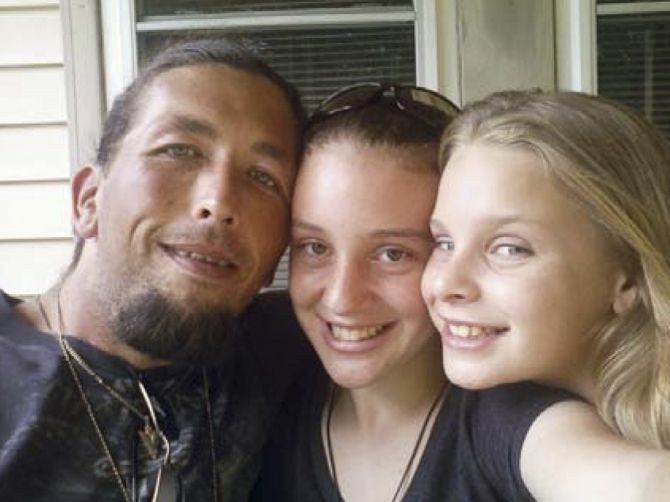Body of FBI Most Wanted Killer Adam Mayes Given to Science after His Family Refuses to Claim it

The body of an alleged killer and kidnapper Adam Mayes, who was briefly on the FBI's 10 Most Wanted Fugitives list, has been given to science after his family refused to claim his remains.
Mayes' body was turned over to The University of Tennessee in Knoxville Wednesday after it laid unclaimed in a Mississippi morgue for a month.
"We've had some unusual cases but none like this where the family won't even accept the remains," Mark Golding, the medical examiner in Union County, Miss., told WMC-TV.
"I do realize it's a terrible thing that has went on but someone is going to have to step up to the plate and eventually do something with him."
The university said that Mayes' body will be studied by UT's Forensic Anthropology Center for its decomposition.
Mayes, a 35-year-old mechanic, sparked a nationwide manhunt on April 27 after he had broken into the home of Jo Ann Bain and killed her and one of her daughters, 14-year-old Adrienne Bain and kidnapped Alexandria Bain, 12, and her 8-year-old sister, Kyliyah.
Mayes had been a close family friend of the Bain's, and friends reported that he had been obsessed with Alexandria and Kyliyah and that he was determined to take the girls from their parents.
He had shot himself in the woods in Union County, Mississippi.
Mississippi officials have been trying to figure out what to do with the body since May 10, and according to state law it's the family's responsibility to claim his body, but his brother, the only member of his family that is not in prison, refused him.
Mayes' wife, Teresa, who is in prison in Tennessee where she is facing charges related to the kidnapping and murder with Mary Mayes, his mother, signed his body over to the UT Knoxville's Forensic Anthropology Center from her jail cell.
"It could've come back onto my county if no one would claim him," Golding said.
"He can go on for research and education and maybe a bad thing, after a bad thing has happened, maybe something good can come of it," he added.
While the university body farm had originally reported being full and said that they could not take any more bodies, they made an exception for Mayes'.
"From the forensic world, nothing is unworthy of study," said former Shelby county medical examiner Dr. O.C. Smith, speaking with WMC-TV. "You have to sit there, you have to look at it and take it apart and watch it happen and that's why although this was a very tragic incident, this is probably the best use for this person's body to serve mankind."



























